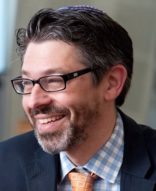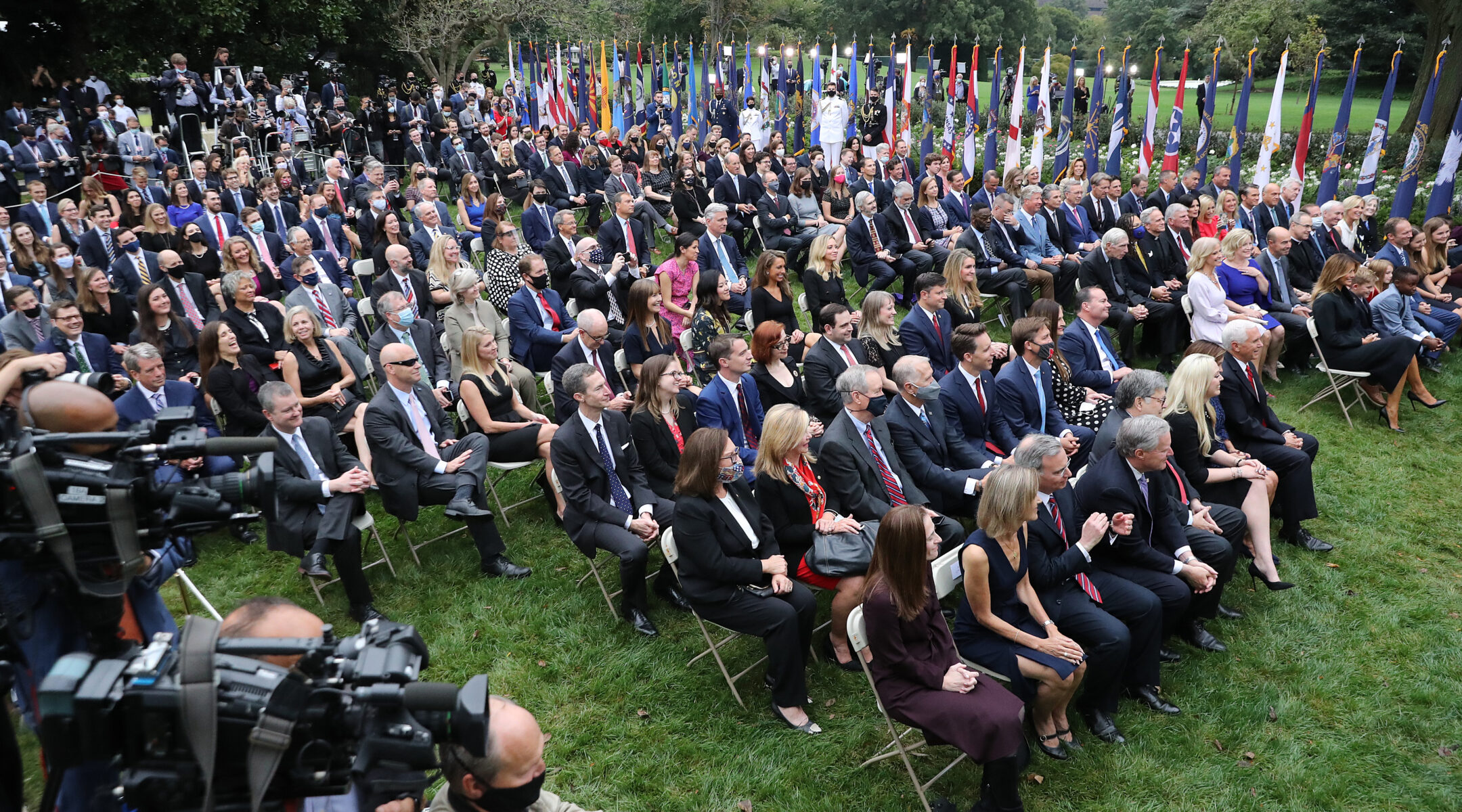(JTA) — Watching a video of elected officials greeting each other — without masks and in close proximity — at Supreme Court nominee Amy Coney Barrett’s White House reception made my work as a rabbi during this pandemic feel even lonelier.
As it turns out, the reception, which was quickly revealed to be a likely COVID-19 superspreading event, also reinforced my certainty that remaining apart is the only safe choice right now.
But that doesn’t change the hurt I felt as I watched the hugging, handshaking, backslapping and mask-less laughing of the White House Supreme Court nominee celebration — for myself and for the people in my community.
For the past several months, for the first time in my career, I have been unable to properly comfort my congregants.
Sometimes, the workarounds have been surprisingly meaningful. But other times they have been hauntingly dystopian. Like when I followed behind a casket while holding my iPhone so family and friends could see what was happening at their loved one’s funeral.
When I arrived at the desolate graveside, I fumbled with my rabbi’s manual in one hand while holding the entire community in the other. Out of the corner of my eye, I saw a pile of dirt with no one to shovel it.
When I do a healing prayer with people, as I did this past Thursday evening for someone who is in the midst of cancer treatment, we typically gather close and hold hands. I don’t pretend to know what the ritual means for the person with whom I am praying.
I myself am not always sure.
But what is always communicated in the most powerful of ways is that they are not alone. Illness can be disorienting and upending, and the moment we hold hands, I am channeling presence.
Being sick can be lonely. People are torn from the flow of life, sidelined while everyone else seems to be moving along, oblivious to and unconscious of their great fortune to simply be living their lives.
In the moment we are holding hands there is a communal pause with this person to say, “we are not moving on, we are here with you.” And I could not do that Thursday night.
Instead of standing close and being present with their pain, I had to recite a prayer from across the room.
To slow the spread of COVID-19 as we wait for a vaccine and more effective treatment, we are all sacrificing some of the most meaningful aspects of being human: Contact and proximity with other human beings.
Many are sacrificing connection even when they desperately need it most: at their downsized weddings, online b’nei mitzvah and virtual minyanim for shivas. I have been moved by people mourning dreams and expectations and embracing what is possible. People have discovered the blessings, but not without going through the loss.
So as I watched members of our government embracing and whispering in each other’s ears without masks, I was disappointed in the lack of leadership from the most powerful people in our nation.
Leadership requires being present with the people you serve and saying, with words and actions, “I am with you.”
This ceremony, conducted differently, with appropriate distance and masks, would have been an opportunity to create a unified nation. Maybe it could have paralleled moments of distanced prayer for healing, transforming them from moments of seeming estrangement into transcendent acts of national and global love.
Instead, so many of us have been abandoned by our leadership to labor in more lonely ways and fight with all our creativity to establish real presence.
I watched the smiling faces of our elected officials indulge in the warmth and comfort of human connection. I thought about the families in my community who would have done anything to have had moments like that for their celebrations and their losses.
Assuming real responsibility these days doesn’t feel or look like victory. It is haunted by the thoughts that we all could have done better — and the certainty that those in that Rose Garden should have.
JTA has documented Jewish history in real-time for over a century. Keep our journalism strong by joining us in supporting independent, award-winning reporting.







